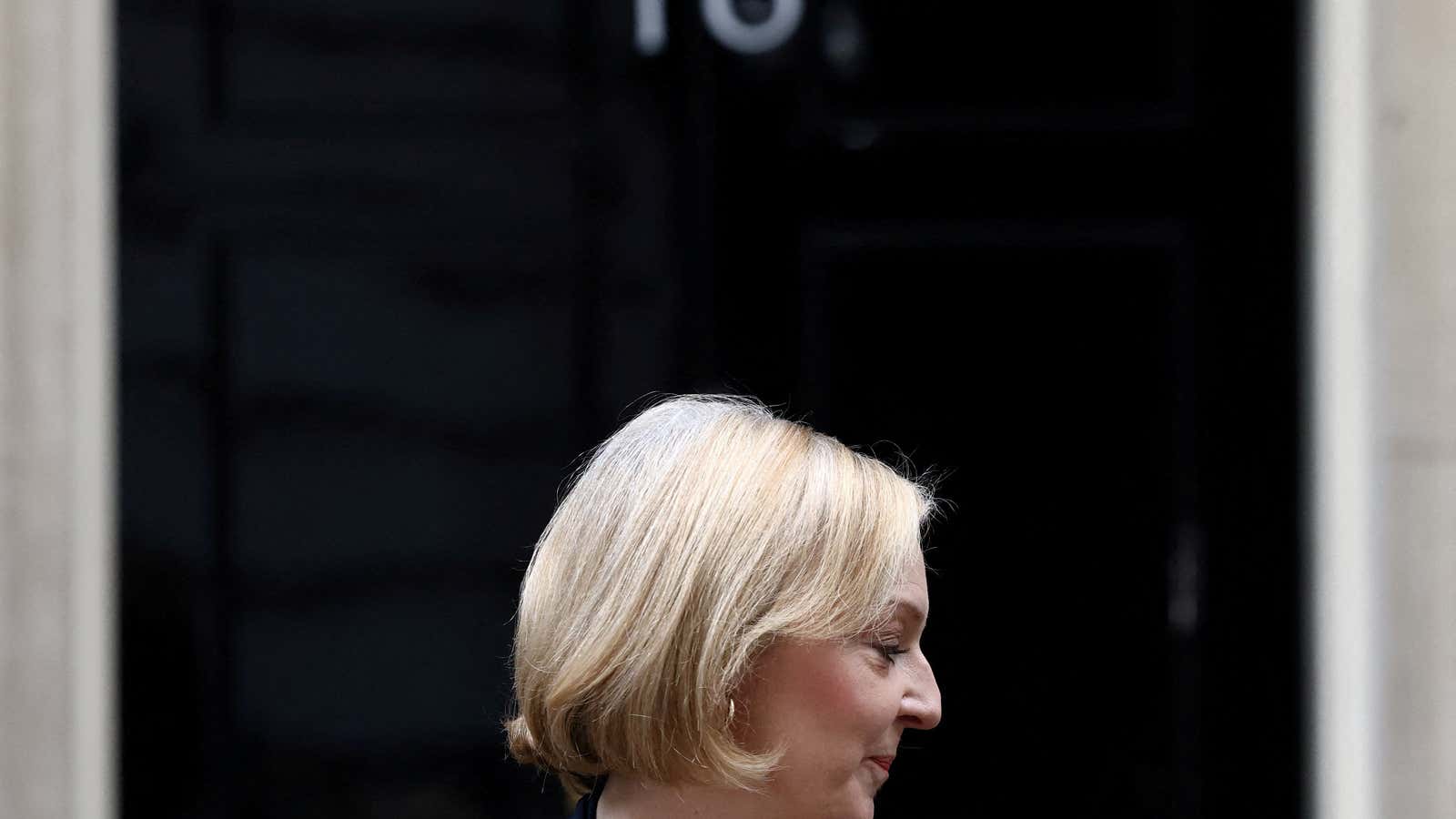I don’t think I’ve ever felt so grateful for the markets.
Markets are faceless, of course. They’re made up of millions of individual decisions, many (though not all) of which are taken by human beings with the usual array of attributes: good and bad judgement, superstition, happenstance, tiredness, and anything else in the mix that day. But markets’ power is in their lack of individual actors—they represent a collective that can’t, in itself, “think” or “decide.”
And yet, in the last weeks, “the markets” have felt more than ever like a burly character in the UK’s political and economic drama, and one which came out swinging in exactly the right direction. Yes, the UK is in real political chaos after the resignation of Liz Truss as prime minister, the second leader to resign in the last four months, and with no clear idea of who will come next.
But we can breathe a sigh of relief at what might have been: Because the markets punished Truss’s unfunded economic plans so harshly, we thankfully don’t have to live through them.
Trickle-down economics
This summer, Truss was chosen by her party—not by the country’s electorate—on a platform of cutting taxes across the board. Her flagship policies, and dearly held ideals, were to stop corporations from paying so much tax and to cut taxes on individuals, particularly on the wealthy. The theory behind such a plan is that stimulating the “top” of the economy will lead to growth, and growth will be good for everyone.
Except trickle-down economics have been proven globally not to work. Such policies have actually led to vast inequality. Many in the UK, and the global markets, were terrified: They saw that the tax cuts were unfunded and realized that though Truss had not announced cuts to public services, it was likely that cuts would come. Where else was the government going to find an extra £45 billion, except from places like the National Health Service (already close to the breaking point), or from welfare payments, schools, parks, libraries, and other arenas of public spending?
Because the markets punished Truss’s unfunded economic plans so harshly, we thankfully don’t have to live through them.
One of Truss’s features, during her short time in the spotlight, was an extraordinary inflexibility. Borrowing costs swelled. The Bank of England intervened to prop up the economy. The IMF issued an embarrassing warning for her to change course. Her own MPs began to beg her to reconsider, not to mention politicians and thinkers from across the political spectrum. For weeks, nothing could shake Truss’s absolute determination that she was right.
Liz Truss’ days in office were numbered
But it’s very hard to argue with a crashing economy.
Faced with an ideological struggle, Truss is clearly able to present a smooth surface, impervious to criticism or facts. But no one can deny the pain or optics of the pound falling to its lowest level in history against the dollar.
Truss reversed her policy in the end, but it was too late.
Markets often don’t work in the way they’re “supposed” to according to Keynesian theory. They don’t distribute wealth fairly. They don’t save people from poverty, or ensure the adequate availability of housing, ambulances, food, or life-saving drugs.
But this week, they stopped a person with one rigid, under-researched plan that would have eviscerated the UK’s public services in pursuit of the feeling that she’d done what she always said she’d do. And for that, we should probably be glad.
